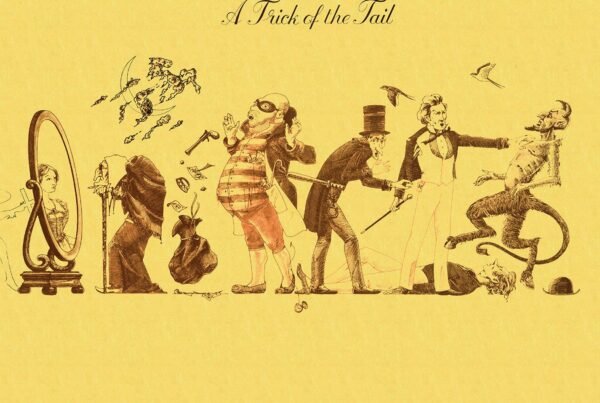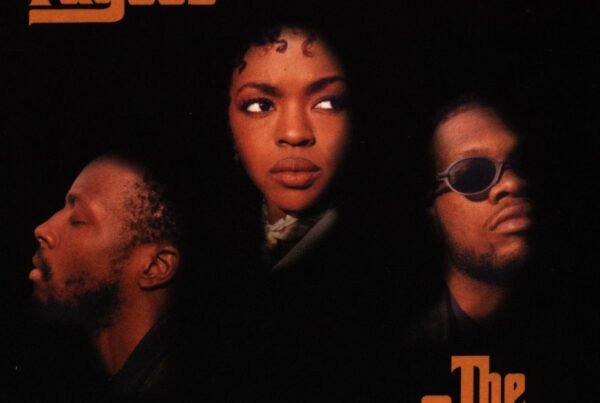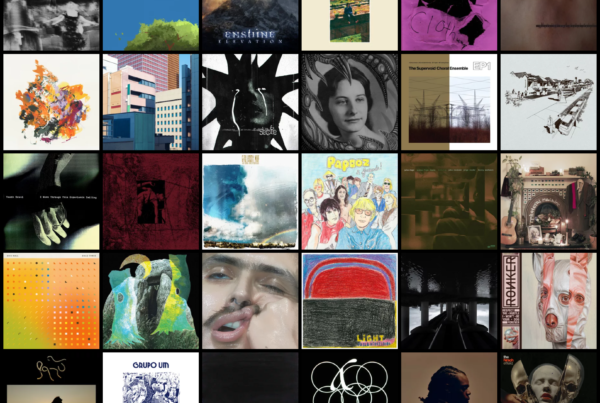Post-punk has made so many resurgences, had so many revivals, and sparked so many permutations that it’s a surprise the sound is still instantly recognizable in the same way it was when it started over 40 years ago. One of the bands who repurposed the aesthetic for the 2010s are Savages from London. Their 2013 début record Silence Yourself has made quite the splash when it was initially released, so revisiting it 10 years down the line felt like a natural progression.
David Rodriguez
Let’s keep it simple this time: Savages really had something special with Silence Yourself. I won’t be delving deep into the history of the band or the circumstances surrounding the release of this album – this is just a straight-up affair of appreciation and how it opened up some personal boundaries for me to like music similar to it.
Now ten years old, I’ve had to reckon with something yet again: I am getting old. I remember hearing about all the buzz this UK post-punk band got back then. I was a big fan of The Needle Drop, so I naturally first heard about them through Anthony Fantano’s very positive review of Silence Yourself. It was a critical darling elsewhere too – 8.7 in Pitchfork? ‘All right,’ I probably thought to myself, ‘let’s try it’. It didn’t grip me. In fact, I don’t remember quite how many times I had to try or how much time went by before it finally clicked with me.
If you remember from other ASIRs, around this time – my early 20s – I was still very much a metal guy. One of my sole motivations was finding the next heaviest, fastest thing. It was either that, or rap that tickled the fancy – Danny Brown, El-P, Kendrick Lamar, Chance the Rapper, YC The Cynic (now known as Kemba), whatever. Savages didn’t fit into either of those camps. This was a hollowed-out, tense, raucous expression of UK-flavored rock. Probably something I should have liked on paper the whole time, but it was peculiar enough to meet with some resistance.
The singles did most of the work. “Shut Up” was monumentally driving with a thick bass line from Ayse Hassan, unassuming yet riveting guitar work from Gemma Thompson that played more with rhythm than melody, and drums courtesy of Faye Milton carry that foundational punk energy with room for plenty of accoutrements like splashy fills and subtle crescendo building.
Then there’s Jehnny Beth’s vocals – the French-British singer commands an English lilt that edges on a husky quality that’s so palatable. She does highs and screams to captivate, but can dip deep and low for a more sultry or pained approach. The best place to see that in action is my personal favorite, “City’s Full”. I absolutely love how the song moves through its parts. It’s powerful, but leaves room for tenderness and love, or at least lust. The reverb-soaked bridge shows a deep interpersonal longing, but the raucous action of the verses and hooks beckons the dense traffic and voices on the streets of the city that always vie for your attention and stir an unsettling alertness out of you.
“She Will” drips with defiant, autonomous sexuality, balking at the thought of patriarchal, shaming norms. The repeated hook punctuates the light storytelling of the track with a sense of domination and power, the drum cymbals clapping rhythmically while guitars whine and moan. “Husbands” carries a frantic energy; Beth’s breathy exertion on the chorus is intriguing and dramatic, the perfect match for a song about leaving your life behind. “Hit Me” is the quickest burn on the album at well under two minutes, action-packed with turbulent melodies, barely on-rails rhythms, and vocals that are more primally aligned, which makes sense, since the song is inspired by porn actress Belladonna and the perceived dichotomy between pleasure and pain, but more so how pain can bring pleasure.
For an album that doesn’t skate too much past the 180 BPM mark at its fastest, Silence Yourself is profoundly heavy and locomotive. The album, just like its cover, feels draped in black and white, devoid of color, but not emotion or feeling. Where some people see a barren flatness to black and white, I try to see the deeper details, and you can’t help but indulge in those with Savages’ well-textured instrumentation (seriously, the guitar and bass tones are legendary). Silence Yourself is an album that really benefits from eyeing (or earing?) the rough edges, tracing your fingers on the wrinkles and blemishes that give it personality and just giving yourself to it as much as you can.
I think this is where I started to really connect the dots that you don’t have to write real raw-ass riffs at turbo speeds like Nile in order to have heft, and sometimes pulling back on the power like that allows it to show in other ways. For a debut album, Savages sound perplexingly collected and resolute in their sound. This is the kind of album I would expect a band to make about a decade in, after some trial and tribulations, and tripping some. In this case, the confidence came first, the stumbles later (their 2016 album Adore Life really fell flat for me – their Fuckers/Dream Baby Dream EP is great, though).
On that note, I don’t expect Savages to ever drop a new project again – the members are all busy doing their own things – and even if they did, I would never expect it to hit the same way because that’s basically impossible. I found Silence Yourself at the best possible time for growth purposes, opening me up to new avenues of musical catharsis. For you, I’d say if you like classic post-punk like Siouxsie and the Banshees or Joy Division, or even more modern bands like labelmates Algiers, you need to try this album. Hell, even if you don’t even know those bands, try it – that’s basically what I did, and look how much this album means to me now. A modern classic in my head.






